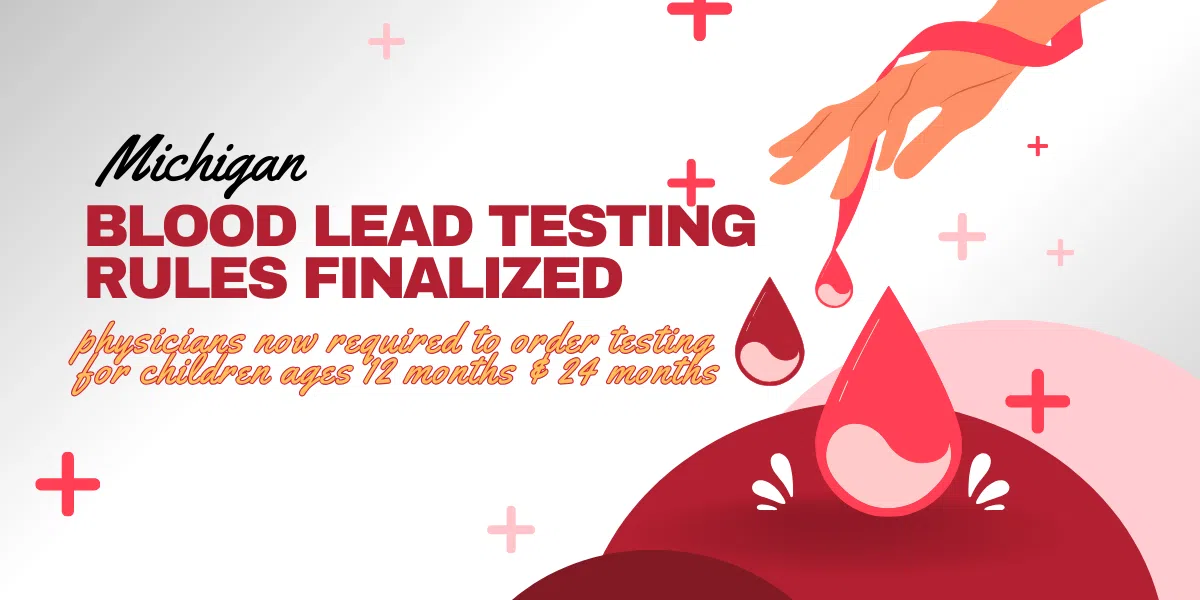To prevent and address lead poisoning in Michigan children, new laws require physicians to provide blood lead testing at ages 12 months and 24 months, effective from October 2023. The tests must be recorded on the child’s immunization record (Public Act 146 of 2023 & Public Act 145 of 2023).
The Michigan Department of Health and Human Services has finalized rules requiring physicians to perform blood lead tests at specified ages and intervals based on exposure risk. Children must receive a test between 24 and 72 months if previous tests are not recorded. Exposure to lead can affect learning, behaviour, speech, hearing, growth rates, and nervous system development.
A blood lead test measures the amount of lead in the blood. Universal testing will increase the number of children tested and those with elevated levels may qualify for nursing case management services or the Lead Safe Home Program. Lead exposure can come from paint, dust, soil, water, jobs, hobbies, and imported goods.
For children with blood lead levels of 3.5 micrograms per deciliter or higher:
- Identify the source of lead.
- Stop the exposure.
- Determine other necessary tests or follow-ups.
Blood lead testing is covered under the Affordable Care Act, without extra charges. Parents should discuss testing with their child’s healthcare provider, especially if concerned about lead exposure. Families may opt out of universal testing requirements. Visit Michigan.gov/MiLeadSafe for more information










Comments